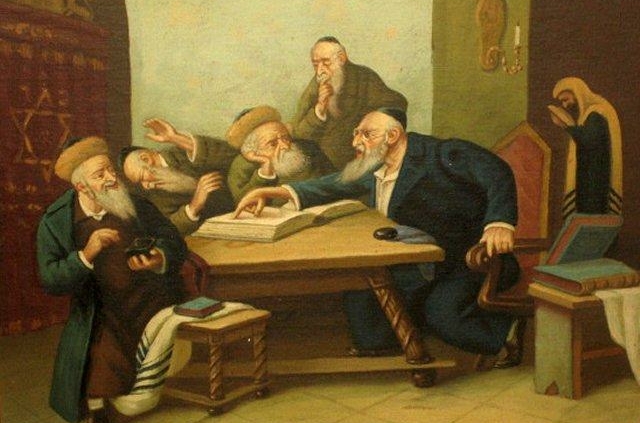Crazy Torah
Some people think that religions are made of crazy stories. Admittedly, there are a lot of crazy stories in the Torah and Talmud. There’s a wild story in the Talmud quoted often to prove that people, and not God, have the final word on Jewish law. I believe this story also poses a challenge to our faith.
The story begins with a debate about whether a specific type of oven is kosher. Rabbi Eliezer alone claimed the oven to be kosher. The others said no. Eliezer was technically correct and called upon Heaven to prove it by uprooting a tree, making a river run backward, and bending the walls of a synagogue. The opposing rabbis said Heaven has nothing to do with this debate. Torah “is not in heaven.” This is a clause from a sentence in a teaching in the Torah. The rabbis had a holy purpose. Their goal was to support uniform ritual practices. To do so, the Rabbis engage in sacred wordplay.
Here’s the whole paragraph: Surely, this Instruction which I enjoin upon you this day is not too baffling for you, nor is it beyond reach. It is not in the heavens, that you should say, “Who among us can go up to the heavens and get it for us and impart it to us, that we may observe it?” Neither is it beyond the sea, that you should say, “Who among us can cross to the other side of the sea and get it for us and impart it to us, that we may observe it?” No, the thing is very close to you, in your mouth and in your heart, to observe it.
More than an attempt to provide conformity to kosher laws, this story poses a challenge to faith. The rabbinic debate abstracts the Torah to pose a critical question. Who is the final arbiter of the Torah? Is Judaism merely inspired by God and crafted by people? Can Judaism advance without an ongoing revelation of the present and perceptible Divine? The danger of the “oven” story is that people surpass God’s role as decider in chief.
Add the onslaught of modernity and its impact on religion. Modern progressive Jews, especially post-holocaust, have difficulty accessing God. After the scientific age, people demand proof, data, and verification. How can we know what God intends when we can’t verify God exists? No lab test can prove God. No equation can explain God. To the scientific mind, God is a storybook figure.
Faith wanes as people claim technological superiority over the world. Are there more incredible miracles than vaccines, iPhones, and DNA testing? As humankind becomes masters (and destroyers) of the universe, we place faith in ourselves, human beings asserting themselves as arbiters of what God’s laws should be. Immanuel Kant projected that man had replaced God in the pursuit of morality.
God happens when there is faith. Faith is the humility of not knowing. Faith is the grace found in wondering. Faith is gratitude for the half-full cup of our lives. Humility, grace, and gratitude are the guiding qualities that expand faith beyond reason and science.
Perhaps our role is to exist in a world of faith rather than the pursuit of conformity and rules. Faith is the path to peace. Belief creates the possibility of freedom. Conviction constructs justice unbounded by the ills of this world. Then, the interpretation of the Torah will follow the Godly paths of peace, freedom, and justice.
A crazy story about an oven and rabbis arguing is not necessarily about the laws of kashruth. It can be about applying our faith to expand holiness in this world. We can interpret the Torah as Godly inspiration to improve the world.
Rabbi Evan J. Krame






 Evan J. Krame was ordained as a rabbi by the
Evan J. Krame was ordained as a rabbi by the